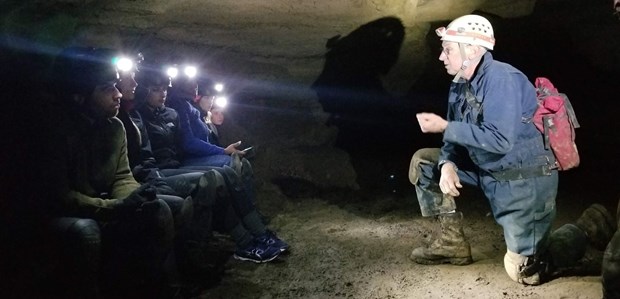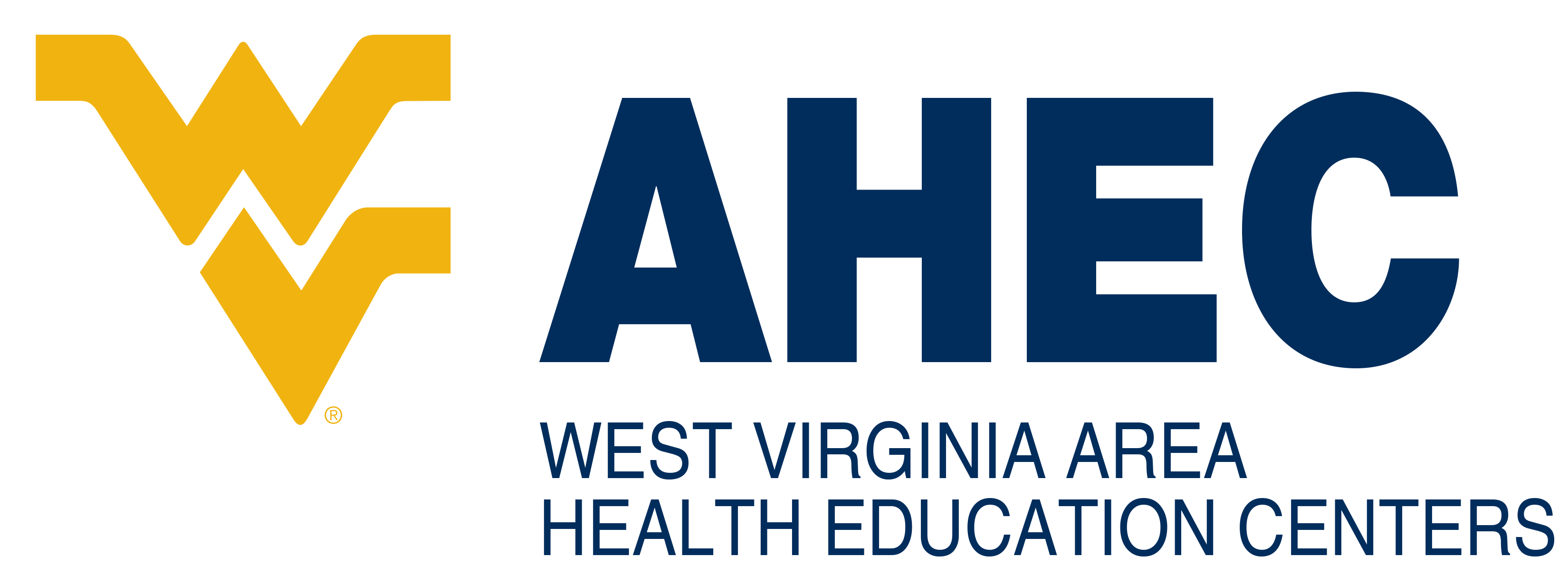Didactic Modules
Scholars are required to complete one of the following modules each year. All modules are designed to meet the 40-hour didactic requirement.
Please note that these modules only fulfill the 40-hour didactic requirement; they do NOT fulfill the 40-hour community-based education requirement.
Addiction in Rural Populations Module
AVAILABILITY: This module is available to First and Second year Scholars.
DELIVERY: Hybrid; online with some travel required
DESCRIPTION: The Addiction in Rural Populations module will provide learning opportunities about the etiology and models of addiction, the continuum of treatment options available for those with substance use disorders, and key principles of recovery and recovery management. The module also provides a full unit about opioids and the roots of the current opioid epidemic. Finally, the module will introduce students to self-help groups and their critical role in addiction recovery.
ATTENDANCE: Scholars are required to:
- Attend one Narcotics Anonymous meeting in a rural or underserved county in WV
- Attend one Alcoholics Anonymous meeting in a rural or underserved county in WV
- Observe one drug court session in a rural or underserved county in WV (can be virtual or in-person)
Scholars are also required to regularly log into SOLE to complete the online learning units and associated assessments.
MODULE INSTRUCTOR: This module is taught by Frankie Tack, AADC, CCS, NCC, CTTS, Clinical Assistant Professor and Mental Health and Addiction Studies Program Coordinator with the department of Counseling and Learning Sciences at West Virginia University. She has worked and taught in the addictions field for 25 years, and is a West Virginia Certified Advanced Alcohol and Drug Counselor and Certified Clinical Supervisor.
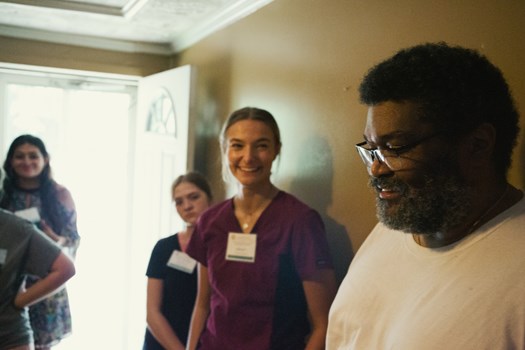
A Primer on Clinical and Translational Science
AVAILABILITY: This module is available to all Scholars. This module is eligible to be taken twice (once each year). Completing the module and activities may count toward BOTH the annual 40-hour didactic and 40-hour CBSE requirements.
DELIVERY: Hybrid; online with possible travel required depending on which experiential learning opportunity is chosen.
DESCRIPTION: This module will introduce Scholars to clinical and translational science concepts, resources, and an opportunity to participate in research. As part of the program, Scholars will have the opportunity to participate in translational and implementation science-focused experiential learning activities with a WVCTSI partner institution. Scholars will choose one of the following experiential learning opportunities:
- West Virginia University Health Sciences Center – Eastern Division (Martinsburg, WV): Participate in research and evaluation activities for the “Farm to You Mobile” Produce Prescription Program.
- Marshall University (Huntington, WV): Participate in evaluation activities for the community-based Comprehensive Opioid, Stimulant, and Substance Abuse Program – Quick Response Team, Law Enforcement Assisted Diversion, Angel Initiative (COSSAP QLA).
- West Virginia School of Osteopathic Medicine and the West Virginia Breastfeeding Alliance (Lewisburg, WV): Participate in the development and implementation of statewide data collection methods and processes around maternal and infant health.
ATTENDANCE: Specific dates and times for the required experiential learning activities will be arranged by the module instructors and the experiential learning host sites.
Scholars are also required to regularly log into SOLE to complete the online learning units and associated assessments.
MODULE INSTRUCTOR: The course facilitators are A. Brianna Sheppard, PhD, MA and Bree Gustke. Bri Sheppard is the Associate Director for Rural Health Workforce and Center Development at the National Center for Rural Health Professions within the University of Illinois College of Medicine - Rockford. She is also Co-Director of Community Engagement and Outreach for the West Virginia Clinical and Translational Science Institute at West Virginia University with whom she currently consults. She has worked and taught in the translational science field for 11 years and is currently involved in several research projects to understand and address the impact of rural health workforce training and policy as well as education, evaluation, and direct service activities to expand access to the continuum of care for addiction in rural areas. Bree Gustke is the Community Engagement and Research Coordinator for the West Virginia Clinical and Translational Science Institute (WVCTSI) within the West Virginia University Research Corporation.
Community-Based Chronic Disease Prevention Module
AVAILABILITY: This module is available to First and Second year Scholars.
DELIVERY: Hybrid; online with required community experience (see description below).
DESCRIPTION: Scholars will identify strategies for effective community-based chronic disease prevention and explore existing initiatives that work to improve health in West Virginia; Scholars will also participate in hands-on experiential learning through an immersive community experience. Additionally, scholars will reflect on the role(s) that they can play in preventing chronic diseases and creating change in communities.
Community Experience: As part of this module scholars will complete a hybrid immersion experience in their home community. Students will be required to register as a volunteer with a food pantry or food distribution organization in their home community. Over the course of the year, students will volunteer a total of 15 hours at their chosen site and submit a reflection essay about the experience.
ATTENDANCE: As part of this module, scholars will engage in an individual immersion experience. Course instructors will assist the scholars in scheduling this experience in their own communities.
MODULE INSTRUCTOR: This module is taught by Lauren Prinzo, MPA, Community and Economic Development Specialist with West Virginia University's Extension Services. She has expertise in designing, implementing, and evaluating community-based health programs.
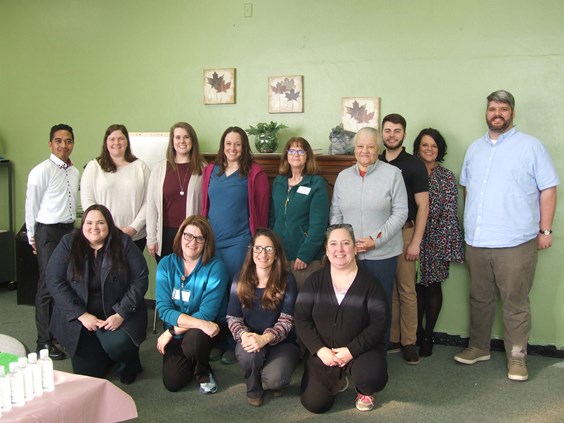
Cultural Competency Module
AVAILABILITY: This module is available to First and Second year Scholars.
DELIVERY: Online; no travel required
DESCRIPTION: Scholars will engage in various opportunities to establish cultural competency with respect to patient care in rural and underserved areas of West Virginia. This module utilizes a public health framework that is based on the interdependence between medicine and public health; participants are encouraged to think critically and reflect on contemporary challenges in health, healthcare, prevention, treatment, diagnosis, education, wellness and practice. Moreover, this module is designed to prepare you to view the populations you serve, and those with whom you collaborate, through a culturally appropriate lens.
ATTENDANCE: Scholars are required to regularly log into SOLE to complete the online learning units and associated assessments.
MODULE INSTRUCTOR: This module was developed by Linda Alexander, EdD. Dr. Alexander is the chief academic officer for the Association of Schools and Programs of Public Health and former Senior Associate Dean for Academic, Student and Faculty Affairs at WVU's School of Public Health. Dr. Heather Henderson, EdD, Assistant Professor of Health Policy, Management, and Leadership and Director of Accreditation, Planning, & Evaluation serves as faculty for this module.
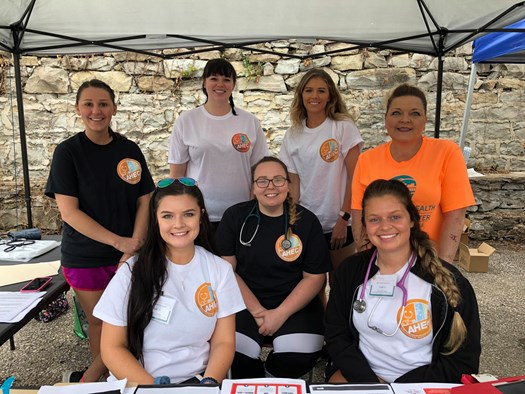
Interprofessional Education Module
AVAILABILITY: This module is only available to Second year Scholars.
DELIVERY: Online; no travel required
DESCRIPTION: Scholars will participate in interprofessional (IPE) activities that focus on various healthcare topics. Additionally, scholars will engage in reflection, application of knowledge and skills, respectful communication, and gain experience in IPE education.
Scholars are also required to regularly log into SOLE to complete the online learning units and associated assessments.
MODULE INSTRUCTOR: This module is taught by Gina Baugh, PharmD. Dr. Baugh is a Clinical Associate Professor in the Department of Clinical Pharmacy, Director of Introductory Pharmacy Practice Experiences at WVU's School of Pharmacy, and the Director of Interprofessional Education for the WVU Health Sciences Center.
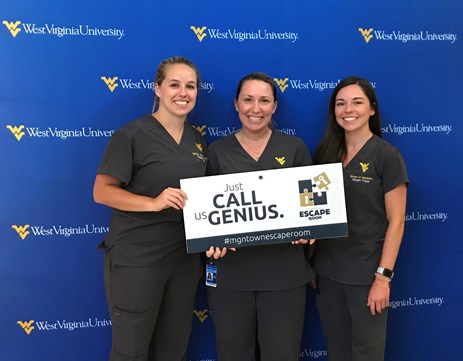
Substance Use Disorder: Pregnant and Parenting Women
AVAILABILITY: This module is available to First and Second year Scholars.
DELIVERY: Hybrid; online with some travel required
DESCRIPTION: This module focuses on Scholars' understanding of the course of addiction, the unique impacts it has on the psycho-social functioning of women who are pregnant and/or parenting, and on the psycho-social and cognitive development of their children. Treatment approaches and public health interventions will also be discussed in detail, and Scholars will participate in a two-day virtual immersive experience.
ATTENDANCE: Scholars have the opportunity to attend a rural immersion in the Huntington, WV, area, as organized by the course instructor. Scholars are also required to regularly log into SOLE to complete the online learning units and associated assessments and participate in the online immersion activity.
MODULE INSTRUCTOR: This module is taught by Marianna Linz, PhD, Marshall University Department of Psychology Chair and Professor. She has been with Marshall University for 28 years, and holds expertise in Developmental and Clinical Psychology and Substance Use Disorder.
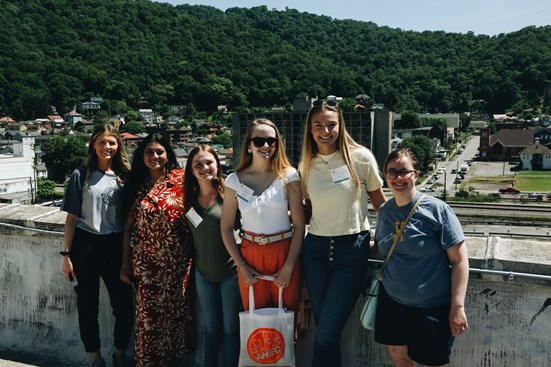
Trauma Informed Treatment Practices for Children and Families in Rural Areas
AVAILABILITY: This module is available to First and Second year Scholars.
DELIVERY: Hybrid; online with some travel required
DESCRIPTION: This module will help Scholars understand the types of common psycho-social challenges that are typically faced by children with chronic medical conditions. The primary focus of this module is on understanding how rural, Appalachian families may experience things differently than their urban counterparts. Concurrently, information on normal development as a backdrop for these challenges and the role(s) of the behavioral health and health professionals in assisting families in the management of these issues will be explored in depth.
ATTENDANCE: Scholars are required to shadow a provider working with children and families of their choice. Scholars are also required to regularly log into SOLE to complete the online learning units and associated assessments and participate in the online immersion activity.
MODULE INSTRUCTOR: This module is taught by Marianna Linz, PhD., Marshall University Department of Psychology Chair and Professor. She has been with Marshall University for 28 years, and holds expertise in Developmental and Clinical Psychology and Substance Use Disorder.
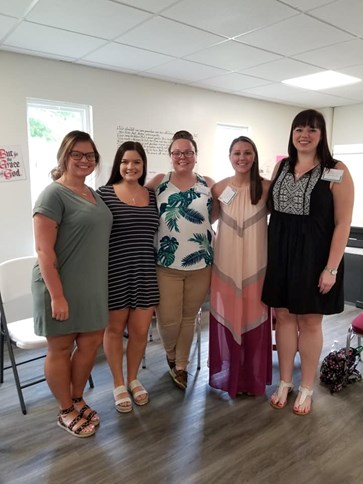
Veterans in Rural Healthcare
AVAILABILITY: This module is available to First and Second year Scholars.
DELIVERY: Online; no travel required
DESCRIPTION: Scholars will engage in on-line learning opportunities to establish their knowledge base about rural Veterans and increase culture competency in working with rural Veterans in community based healthcare settings. Rural Veterans will be presented as somewhat invisible heroes throughout history and the course will include implications for rural health professionals. This content will include the issues faced by rural veterans and their families who live in rural areas and the layered complexities they face. Content will focus on the social determinants of health outcomes for these Veterans and their families. Course content will focus upon the role of rural and minority people in military service, their social, health, and their psychological needs. The content will be presented in a lecture format, with slides of photographs and text and a question and answer sessions following the course module. The instructor is willing to host virtual discussion groups for participants who are interested.
ATTENDANCE: Scholars are required to regularly log into SOLE to complete the online learning units and associated assessments. No in-person activities are required.
MODULE INSTRUCTOR: This module is taught by Hilda R Heady, MSW. Heady is Senior Fellow at Guidehouse (a small business based in Washington, DC) and the former associate vice president for Rural Health at the Robert C Byrd Health Sciences Center at WVU where she served for 18 years as executive director of the WV Rural Health Education Partnerships and eight years as the State Director of WV AHEC. Heady has 47 years experience in working in a variety of roles in rural health and rural social work with rural Veterans, homeless Veterans, at risk women and pregnant and parenting teens, health care administration, higher education and training and rural community development. Heady is a charter board member of the Community-Campus Partnerships for Health (CCPH), former president of the National Rural Health Association (NRHA) and assisted in the creation of the Rural Medical Educators (RME) national organization within NRHA. Heady also was a charter member serving five years by appointment of the Secretary of Veterans Affairs to the Veterans Rural Health Advisory Committee.
